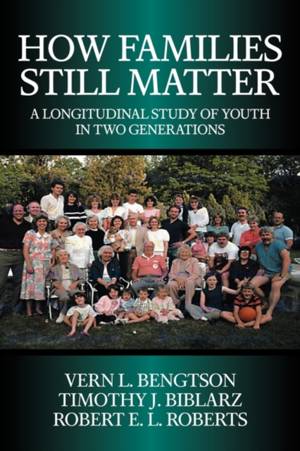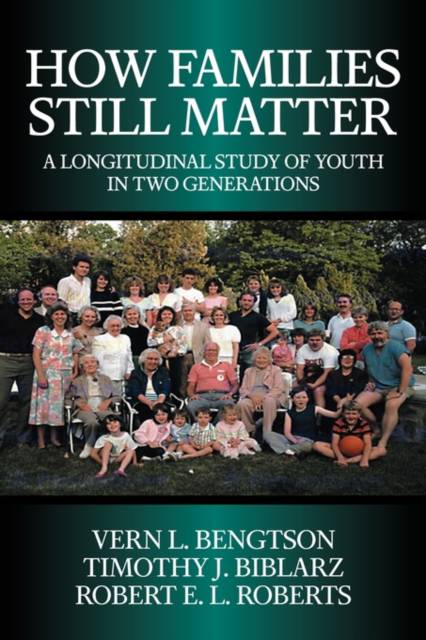
- Retrait gratuit dans votre magasin Club
- 7.000.000 titres dans notre catalogue
- Payer en toute sécurité
- Toujours un magasin près de chez vous
- Retrait gratuit dans votre magasin Club
- 7.000.0000 titres dans notre catalogue
- Payer en toute sécurité
- Toujours un magasin près de chez vous
How Families Still Matter
A Longitudinal Study of Youth in Two Generations
Vern L Bengtson, Timothy J Biblarz, Robert E L Roberts
Livre broché | Anglais
67,95 €
+ 135 points
Format
Description
Are family influences on youth declining in importance? Are parents less important in shaping the life orientations and achievements of youth than they were a generation ago? What about the consequences of divorce? How Families Still Matter casts doubt on the conventional wisdom about family decline during the last decades of the twentieth century. The authors draw from the longest-running longitudinal study of families in the world--the Longitudinal Study of Generations, conducted at the University of Southern California--to discover whether parents are really less critical in shaping the life choices and achievements of their children than they were a generation ago. They compare the influence of parents on the Baby Boomer generation with that of Baby Boomer parents on their own Generation-X children--and their findings are surprising. Vern Bengtson holds the AARP/University Chair in Gerontology and is Professor of Sociology at the University of Southern California. Bengtson has received the Reuben Hill Award from the National Council of Family Relations (1980 and 1986); the Distinguished Scholar Award from the American Sociological Association's section on aging (1995); the Robert W. Kleemeier Award from the Gerontological Society of America (1996); and the Ernest W. Burgess Award from the National Council on Family Relation (1998). Timothy J. Biblarz is Associate Professor and Graduate Director in the Sociology Department at the University of Southern California. His papers have appeared in the American Sociological Review, American Journal of Sociology, Journal of Marriage and the Family, Social Forces, and other journals. Robert E.L. Roberts is Professor of Sociology at California State University, San Marcos. His articles have appeared in Social Psychology Quarterly, Journal of Gerontology: Social Sciences, Journal of Marriage and Family, and Sociological Quarterly.
Spécifications
Parties prenantes
- Auteur(s) :
- Editeur:
Contenu
- Nombre de pages :
- 240
- Langue:
- Anglais
Caractéristiques
- EAN:
- 9780521009546
- Date de parution :
- 04-11-02
- Format:
- Livre broché
- Format numérique:
- Trade paperback (VS)
- Dimensions :
- 153 mm x 231 mm
- Poids :
- 326 g

Les avis
Nous publions uniquement les avis qui respectent les conditions requises. Consultez nos conditions pour les avis.






